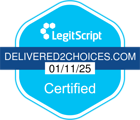Table of Contents
Toggle1. Understanding DOT Regulations on Prescription Medications
The Department of Transportation (DOT) enforces strict regulations to ensure that commercial drivers operate vehicles safely. Under 49 CFR § 391.41, drivers are prohibited from using:
- Controlled substances listed in Schedule I (e.g., Opiates, LSD).
- Amphetamines, narcotics, or other habit-forming drugs, unless prescribed by a licensed medical practitioner who affirms that the driver can safely operate a commercial motor vehicle (CMV) while using the medication .
It’s crucial to understand that even legally prescribed medications can lead to disqualification if they impair driving ability, are not properly disclosed, or are used outside the prescribed date range.
2. Common Prescription Medications That May Lead to Disqualification
Certain prescription medications can impair a driver’s ability to safely operate a CMV. These include:
- Opioids (e.g., oxycodone, hydrocodone, morphine): Can cause drowsiness and slow reaction times.
- Benzodiazepines (e.g., diazepam, lorazepam): May lead to dizziness and impaired coordination.
- Anti-seizure medications: Often disqualifying due to their potential side effects .
- Medications for vertigo or inner ear disorders: Conditions like Meniere’s disease can be disqualifying .
It’s essential to consult with a medical examiner to determine if your medication regimen is compliant with DOT regulations.
3. The Role of Medical Examiners and Medical Review Officers (MROs)
Medical Examiners (MEs) are responsible for certifying that drivers are medically qualified to operate CMVs. They assess the impact of medications on a driver’s ability to drive safely.
Medical Review Officers (MROs) evaluate drug test results and may contact prescribing physicians to verify that a medication is prescribed and that the driver can safely perform their duties. If concerns arise, MROs can recommend that the driver seek alternative treatments or be disqualified .
4. Steps to Ensure Compliance with DOT Medication Regulations
To avoid violations:
- Disclose all medications: Always inform your ME and MRO about any prescription or over-the-counter drugs you are taking.
- Obtain proper documentation: Ensure your prescribing physician provides a statement confirming that your medication does not impair your ability to drive safely. And that you have taken them inside the prescribed date range.
- Avoid self-medication: Do not take medications not prescribed to you, as this can lead to disqualification.
- Outside of date range: As needed narcotic medication (i.e. Norco, Vicodin) is risky because you may take outside the date range, which is a violation.
- Stay informed: Regularly review DOT regulations and consult with healthcare professionals to ensure ongoing compliance.
5. FAQs on Prescription Medications and DOT Violations
Q1: Can I drive a CMV while taking prescribed medication?
A: Yes, if the medication is prescribed by a licensed practitioner who confirms it won’t impair your ability to drive safely, and this is documented appropriately.
Q2: What happens if I fail to disclose my medication during a DOT physical?
A: Failing to disclose medications can lead to disqualification and potential legal consequences. Make sure you provide the MRO the medication document that fits within the date range of the UA test.
Q3: Are over-the-counter medications a concern?
A: Yes, some over-the-counter drugs can impair driving ability. Always consult with a medical professional before taking any new medication.
Q4: What should I do if my medication is disqualifying?
A: Discuss alternative treatments with your healthcare provider and inform your ME. You may need to switch medications or adjust dosages to comply with DOT regulations.
6. Stay Compliant and Safe with [Your Business Name]
Ensuring compliance with DOT medication regulations is vital for your safety and career. At Delivered2choices, we specialize in guiding commercial drivers through the complexities of DOT compliance. Our team offers:
- Personalized consultations to review your medication regimen.
- Assistance with documentation required for DOT physicals.
- Ongoing support to keep you informed about regulatory changes.
https://delivered2choices.com/contact/Contact us today to schedule a consultation and take the first step towards safer, compliant driving.





